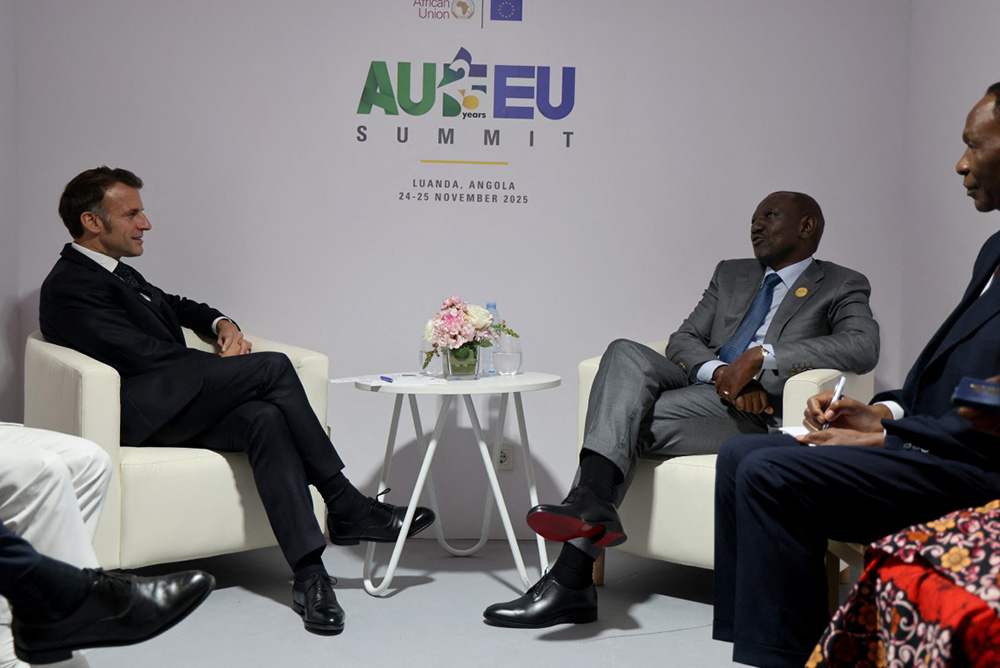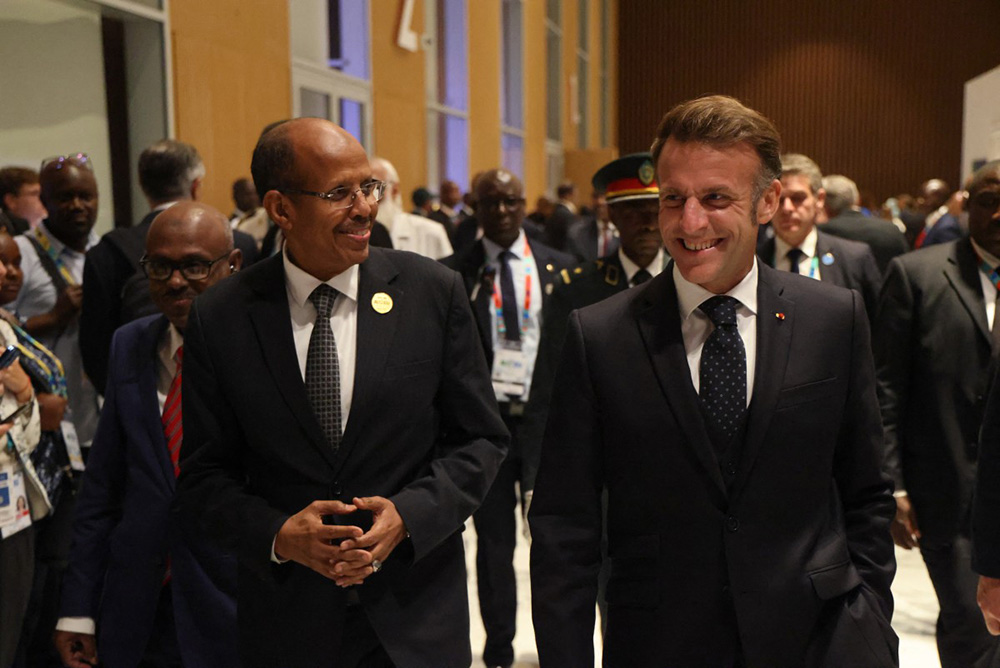EU, Africa leaders talk trade and minerals in Angola summit
South Africa's Cyril Ramaphosa and Felix Tshisekedi of the Democratic Republic of Congo were among a stream of heads of state and government welcomed by host Joao Lourenco of Angola.
European and African leaders line up for the family photo at the end of the first day of the Africa Union (AU) - European Union (EU) Summit the Salao Protocolar in Luanda on November 24, 2025. (Photo by Ludovic MARIN / AFP)
__________________
LUANDA — European and African leaders gathered in Angola Monday for a summit to deepen economic and security ties that also presented the chance for emergency talks on Ukraine.
European Union chief Antonio Costa chaired an impromptu EU summit at a Luanda hotel in the morning, as Europe and Kyiv push to review a US proposal to end the Ukraine war, seen as heavily favouring Moscow.
"While work remains to be done, there is now a solid basis for moving forward," European Commission President Ursula von der Leyen said after the meeting, which followed Sunday talks between US, Ukrainian and European officials in Geneva.
France's President Emmanuel Macron (L) sits during a bilateral meeting with Kenya's President William Ruto (R) during the Africa Union (AU) - European Union (EU) Summit the Salao Protocolar in Luanda on November 24, 2025. (Photo by Ludovic MARIN / AFP)
EU leaders, including Germany's Friedrich Merz and Poland's Donald Tusk then headed to a conference centre near the waterfront of the Angolan capital for a summit with their African counterparts.
South Africa's Cyril Ramaphosa and Felix Tshisekedi of the Democratic Republic of Congo were among a stream of heads of state and government welcomed by host Joao Lourenco of Angola.
"The Europe-Africa axis must increasingly become the central axis of the international community," said UN chief Antonio Guterres.
Addressing the gathering, which came on the heels of a G20 meeting in South Africa where a US boycott underscored geopolitical fractures, Lourenco decried "deteriorating" global security, citing conflicts in Europe, Africa and the Middle East.
"It is urgent that multilateralism be rescued," he said.
'Implementable commitments'
The summit marks 25 years of EU-African Union relations -- ties that analysts say need revamping if Europe wants to hold on to its role as the continent's top partner.
"Our prosperity is more connected than ever. We both need to build the industries of tomorrow. We both need to make the most of our talent and resources and get rid of dangerous dependencies," European Commission President Ursula von der Leyen said in opening remarks.
Africa has emerged as a battleground for its critical minerals and energy potential, with China, the United States and Russia also seeking to foster stronger ties.
The EU is the leading supplier of foreign direct investment to the continent and its top commercial counterpart. Trade in goods and services hit 467 billion euros ($538 billion) in 2023, according to Brussels.
The Gulf states and Turkey have also made significant inroads, granting African nations bargaining power with the EU, said Geert Laporte of ECDPM, a European think tank.
"We don't have that situation anymore where Europe was the only partner," he said.
Observers say Europe needs to invest in infrastructure, energy and job-creating industrial projects in Africa, and a move away from lofty statements of support.
"Africa is looking not for new declarations but for credible, implementable commitments," said AU spokesman Nuur Mohamud Sheekh.
Minerals and credibility
Boosting trade is a top priority as US tariffs buffet both continents.
The EU is expected to offer expertise to help build up intra-African trade, which currently accounts for a paltry 15 percent of the global total, diplomats said.
It will also seek to secure critical minerals needed for its green transition and ease dependency on China for rare earths, essential for tech and electronic goods.

President of France Emmanuel Macron (R) and African Union Commission Chairperson Mahamoud Ali Youssouf (L) smile as they walk together at the Africa Union (AU) - European Union (EU) Summit the Salao Protocolar in Luanda on November 24, 2025. (Photo by Ludovic MARIN / AFP)
"Europe has the know-how and technology; Africa has the fundamental raw materials for the world's industries," said Lourenco.
The 27-nation bloc will likely showcase new investments under the Global Gateway -- a massive infrastructure plan that Brussels hopes can counter China's growing influence.
Summit host Angola is home to one of the EU's signature undertakings: the Lobito corridor, a railway project funded in partnership with the United States to connect mineral-rich areas of the Democratic Republic of Congo and Zambia to the Atlantic coast.
"Europe's credibility now depends on whether it can support the delivery of projects that create value in Africa, not just visibility for Brussels," said Ikemesit Effiong of the Nigeria-based consultancy SBM Intelligence.
The summit is to continue on Tuesday, although some leaders including Merz, France's Emmanuel Macron and Italy's Giorgia Meloni are expected to leave Monday night.